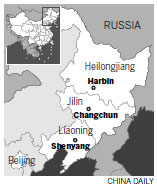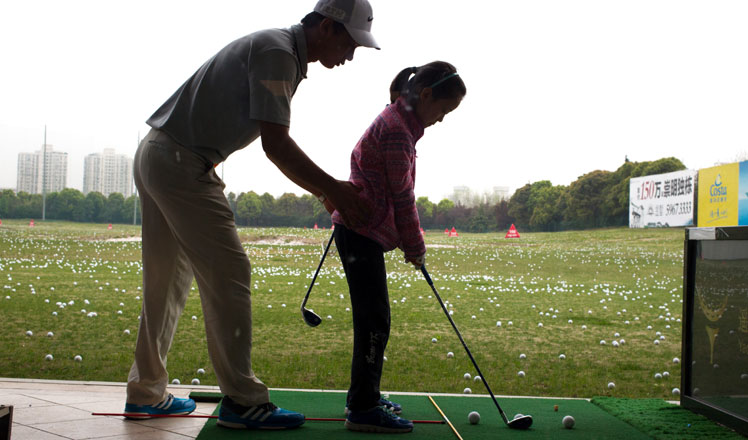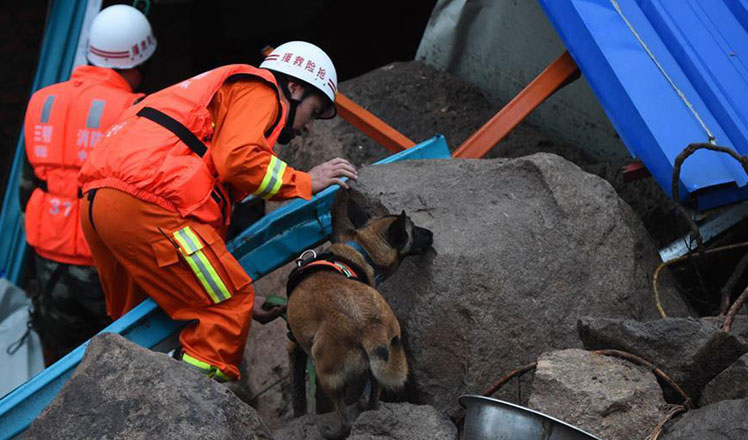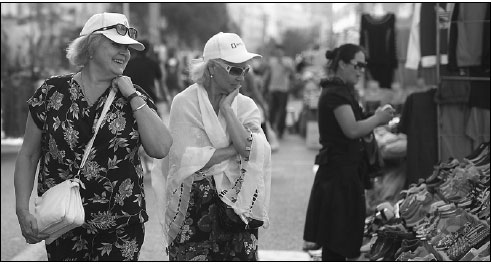Province seeks 'migratory' seniors
Updated: 2016-05-10 08:21
By Luo Wangshu In Beijing And Tian Xuefei In Harbin(China Daily)
|
||||||||
Heilongjiang promotes northern benefits as a way to enjoy cooler summer season
China's northeastern province is aiming to position itself as a summer destination for the elderly in a bid to boost tourism income and revive its economy.
"We have attempted to discover the migratory patterns of seniors," said Sun Yongbo, vice-governor of Heilongjiang province. "Currently, many seniors from Heilongjiang travel to Sanya, in southern China's Hainan province, for the winter. In a similar way, we aim to attract seniors from all over the country to spend their summers in Heilongjiang."
Sun said seniors are increasingly traveling to different parts of the country at certain times of the year, rather like migratory birds, and if they were to visit Heilongjiang in large numbers, the economic boost could help offset the recent economic decline caused by low GDP growth, overcapacity in traditional industries and the proliferation of unprofitable companies.
China has a rapidly aging population and, by 2015, will have 222 million people who are older than 60, so the market is an important one.
"Our provincial economic situation has faced unprecedented challenges and difficulties," the vice-governor said. "In the last two years, traditional industries, which are all pillars of the provincial economy, including the coal and wood sectors, have experienced dramatic decreases."
Heilongjiang borders Russia's eastern extremity and was once part of Northeast China's industrial powerhouse with Jilin and Liaoning provinces.
But the area is now faced with overproduction and beset with outdated technology, and the province's GDP growth rate of 5.7 percent last year was among the slowest nationwide.
The attempt to attract senior citizens will highlight the province's beautiful natural environment, its pleasant summer temperatures, abundant forests and clean air.
According to the provincial government, more than 650,000 nonlocal seniors traveled to Heilongjiang for the summer in 2015. With the province's 2,981-kilometer border with Russia, Heilongjiang is also hoping that, in future, more seniors will travel through the province on their way to Russia and beyond.
"Many Russian seniors also spent their summer in Heilongjiang," the vice-governor said.
Han Ren, a 63-year-old retired college professor living in southwestern China's Chongqing city, said he and his wife love the idea of escaping from their "furnace" city during the summer.
"Our plan is to take a 10-day tour of Heilongjiang at first," Han said. "If we really like it, we are considering spending more time there. Our generation enjoys Russian culture ... I heard it is easy to visit Russia from Heilongjiang and that's our next plan."
Contact the writers at luo-wangshu@chinadaily.com.cn
Travel patterns of elderly create new economic opportunities
It is well-known that thousands of elderly people from northern part of China travel long distances to spend winter in the south. But the reverse - south to north in summer - holds promise, according to a travel industry professional.
"As the elderly population increases, the senior-care industry is embracing innovation," said Xu Xiaolei, chief branding officer at Aoyou.com, an online booking website. He called south-to-north travel during the hot season an innovative idea.
A survey conducted by Xu's company found that the number of non-Heilongjiang mobile phone users who traveled to Heilongjiang last year had jumped 25 percent over the previous year.
China Youth Travel Service has run a summer train tour for seniors to northeastern regions since 2010, helping them avoid hot weather.
Short-term travel is good, but the long-term "migratory senior" service requires a whole package of services, Xu said.
"It won't work if a few real estate agencies only build fancy houses in third- or fourth-tier counties and sell them to seniors. Those who can afford 'migratory' services are upper-middle class, have money and are educated. They will get bored in a week if they just sit in the countryside and gaze at the clear sky," Xu said. "Services such as suitable entertainment and medical services, should be included."

|
Two Russian women walk down a street lined with vendors in the border city of Heihe, Heilongjiang province, in July. Many Russians now spend the summer in the province. Provided To China Daily |
(China Daily 05/10/2016 page4)
- Breast cancer deaths fall, but cases still on the rise
- Doctor's death prompts calls for protection of medical staff
- Survivors found as dozens buried in landslide
- 60% of career women say no to second child, report finds
- Captain held after vessels collide at sea
- Human rights practices reviewed 30 years on from UN declaration

 Canada getting on top of Alberta wildfire, Fort McMurray off limits
Canada getting on top of Alberta wildfire, Fort McMurray off limits
 Young golfers enjoy the rub of the green
Young golfers enjoy the rub of the green
 71st anniversary of victory over Nazi Germany marked
71st anniversary of victory over Nazi Germany marked
 Post-90s girl organizes others’ messy wardrobes
Post-90s girl organizes others’ messy wardrobes
 Landslide hit hydropower station in SE China
Landslide hit hydropower station in SE China
 World's first rose museum to open in Beijing
World's first rose museum to open in Beijing
 Teapot craftsman makes innovation, passes down techniques
Teapot craftsman makes innovation, passes down techniques
 Raging wildfire spreads to more areas in west Canada
Raging wildfire spreads to more areas in west Canada
Most Viewed
Editor's Picks

|

|

|

|

|

|
Today's Top News
Liang avoids jail in shooting death
China's finance minister addresses ratings downgrade
Duke alumni visit Chinese Embassy
Marriott unlikely to top Anbang offer for Starwood: Observers
Chinese biopharma debuts on Nasdaq
What ends Jeb Bush's White House hopes
Investigation for Nicolas's campaign
Will US-ASEAN meeting be good for region?
US Weekly

|

|








